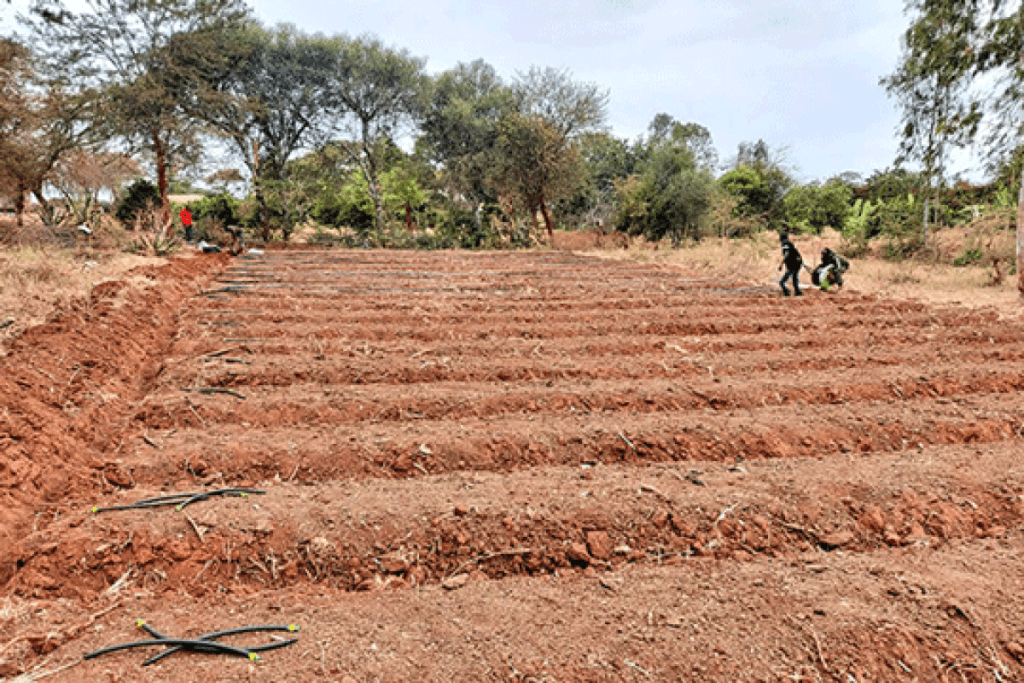Climate change has had a profound impact on weather patterns worldwide, including Nigeria. According to the Intergovernmental Panel on Climate Change (IPCC, 2018), there has been an increase in extreme weather events in some key countries around the world such as droughts, floods, and heatwaves due to climate change, which is also evidenced by the recent earthquake in Morocco.
In recent years, Nigeria has witnessed erratic and unpredictable rainfall patterns, which have severely affected its agricultural sector. The Nigeria Meteorological Agency (NiMet) reported that between 2018 and 2020, the country experienced a significant decrease in rainfall, with a decrease of about 30% in some regions (NiMet, 2020). The agriculture sector in Nigeria heavily relies on rainfall for crop cultivation and livestock rearing. The unpredictable rainfall patterns have led to reduced crop yields and livestock losses. According to the Food and Agriculture Organisation (FAO), the agriculture sector contributes about 23% to Nigeria’s Gross Domestic Product (GDP) and employs about 70% of the population (FAO, 2020).
This article has explored the challenges posed by these shifting weather patterns, with a particular focus on the 2023 prediction for the Little Dry Season (LDS) and its potential impact on key regions as made by Seasonal Climate Predictions (2023). Studies conducted in Nigeria indicate that the country had experienced inconsistent rainfall patterns, a phenomenon that has sent shockwaves through its agricultural landscape. These erratic patterns, characterised by droughts and prolonged dry spells, most especially, at the end of the year, have left farmers facing significant uncertainties in crop cultivation and harvests. For example in 2022 a study by Okorafor Oluchi (2022) suggested that Nigeria suffered below-average rainfall, leading to diminished crop yields across several regions.
Such events underscore the vulnerability of Nigeria’s agriculture to unpredictable weather patterns, with devastating consequences for food security and economic stability. Looking ahead to this present 2023, the focus turns to the prediction of the Little Dry Season (LDS), a phenomenon that holds considerable importance for Nigerian farmers, particularly, those in the South-West states of Oyo, Osun, Ogun, and Lagos. According to the Seasonal Climate Prediction (SCP, 2023), this year’s LDS was expected to be less severe in comparison to the previous three years. It was projected to commence, between the 21st and 26th of July in the aforementioned states, with an estimated duration of 14 to 20 days. Additionally, parts of Kogi, Ekiti, and Ondo were anticipated to experience a milder impact of the LDS, with a predicted length of 10 to 14 days.
What distinguishes the SCP 2023 prediction from its predecessors is its remarkable accuracy. As we stand here in September, it is evident that the SCP’s forecast for the 2023 Little Dry Season has indeed come to pass. The regions of Oyo, Osun, Ogun, and Lagos witnessed the LDS as predicted, with a duration that aligned closely with the estimates provided by the SCP. Farmers in these areas could plan and adjust their agricultural activities based on this reliable information. The SCP’s prediction of a less severe LDS in 2023 offers not only hope, but also a tangible example of the value of accurate climate forecasting for agriculture. Reduced severity implies a more favourable growing environment, at least, during this specific period. However, it’s crucial to approach this forecast with cautious optimism and consider the broader context of Nigeria’s climatic challenges.
One key concern is the unpredictability of weather patterns beyond the LDS. While a milder LDS may provide temporary relief, it does not address the underlying issue of erratic rainfall throughout the year. Farmers in Nigeria need reliable rainfall throughout the growing season, not just during specific periods. The broader question, then, is whether this prediction signals a long-term shift toward more favourable conditions or merely a brief respite. Additionally, the accuracy of weather predictions is always a point of contention. While meteorological agencies strive for precision, the inherent complexity of climate systems means that forecasts carry a degree of uncertainty. Farmers must be prepared for the possibility that the actual weather conditions may deviate from the predictions, underscoring the need for adaptive strategies and risk management.
The proven accuracy of the SCP 2023 prediction has both immediate and long-term implications for agriculture in the affected regions. In the short term, farmers can use this information to plan their planting and harvesting schedules more effectively, with confidence in the reliability of the forecast. The expectation of milder conditions during the LDS suggests an opportunity to optimise crop choices and cultivation practices for this specific period. However, it’s essential not to let this prediction overshadow the need for broader climate-resilient strategies. In the long term, the SCP 2023 prediction should serve as a model for policymakers and stakeholders in Nigeria’s agricultural sector. While a less severe LDS may provide temporary relief, the underlying issue of erratic rainfall patterns persists. To address this, investments are needed in climate-resilient agriculture, including drought-resistant crop varieties, improved irrigation infrastructure, and enhanced access to weather information for farmers.
Furthermore, regional disparities in the predicted impact of the LDS highlight the need for targeted interventions. Areas with a shorter LDS duration should focus on maximising their use of this period, while regions with longer LDS periods may need additional support to mitigate potential challenges. Nigeria’s agriculture is at the mercy of unpredictable climate patterns, a reality that poses significant challenges to food security and economic stability. The proven accuracy of the SCP 2023 prediction for the Little Dry Season underscores the value of reliable climate forecasting for agricultural planning. As Nigeria grapples with the impact of climate change, proactive measures, adaptive strategies, and targeted investments are essential to ensure the resilience of its agriculture sector in the face of uncertain weather patterns. Hence, the SCP 2023 prediction, which has come to fruition, provides valuable insights into the potential benefits of accurate climate forecasting. However, it should serve as a catalyst for more comprehensive and sustainable solutions to the challenges posed by erratic rainfall patterns in Nigeria’s agriculture sector.



